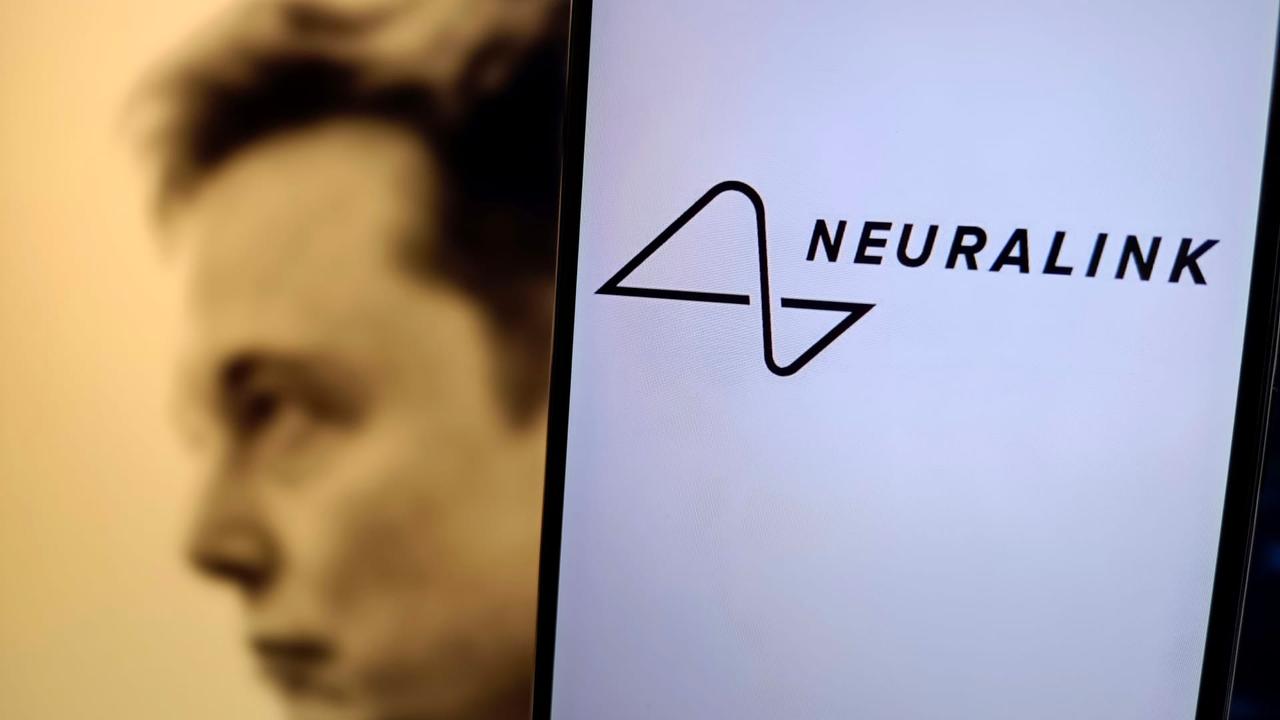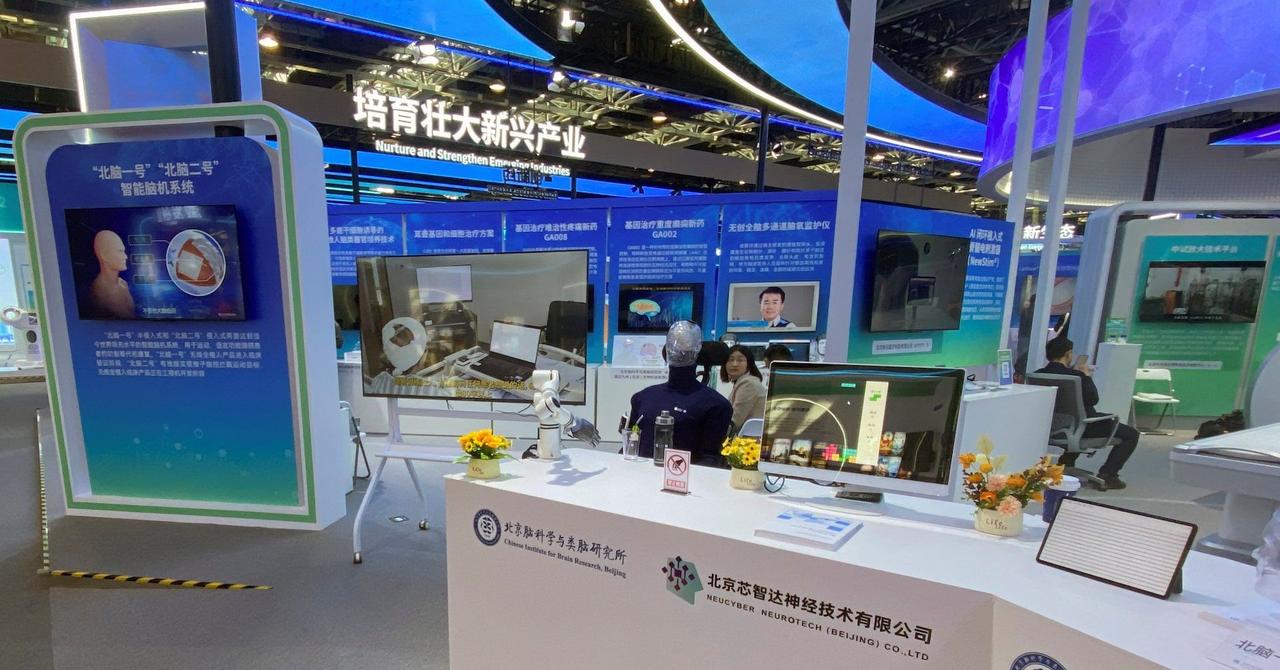Elon Musk's Neuralink Achieves FDA Breakthrough Device Status for Blindsight Implant
2 Sources
2 Sources
[1]
Elon Musk's Neuralink brain chip receives FDA's 'breakthrough device'...
Elon Musk's brain chip firm Neuralink has received "breakthrough device" status for an implant aimed at helping blind patients regain their sight, the firm announced Wednesday. Dubbed "Blindsight," the experimental brain implant gained clearance from the US Food and Drug Administration to participate in the voluntary program. It is one of 58 devices to receive the designation so far this year, according to the FDA. Musk - who is known for making bold proclamations about his companies' products long before they hit the market - celebrated the FDA's decision by sharing a photo of "Star Trek: The Next Generation" actor LeVar Burton, whose character Geordi La Forge used a futuristic visor to see. "The Blindsight device from Neuralink will enable even those who have lost both eyes and their optic nerve to see," Musk wrote on X. "Provided the visual cortex is intact, it will even enable those who have been blind from birth to see for the first time." The FDA did not immediately return The Post's request for comment. The "breakthrough device" program is aimed at "speeding up development, assessment and review for premarket approval" for medical devices that treat life-threatening or permanent conditions - as long as they meet safety standards, according to the agency's website. "To set expectations correctly, the vision will be at first be low resolution, like Atari graphics, but eventually it has the potential be better than natural vision and enable you to see in infrared, ultraviolet or even radar wavelengths, like Geordi La Forge," Musk added. Musk co-founded Neuralink in 2016. It is one of many projects for the tech titan, who also owns X and the artificial intelligence startup xAI while also serving as CEO of Tesla and SpaceX. Neuralink is also developing an implant that aims to allow paralyzed patients the ability to use digital devices with their brains. In January, Noland Arbaugh, a 30-year-old Arizona man who was paralyzed from the neck down after a diving accident, became the first human to receive a Neuralink implant.
[2]
Elon Musk's Neuralink gets FDA's 'breakthrough device' tag for this - Times of India
Elon Musk-owned brain-chip startup, Neuralink, has achieved a major milestone from the US Food and Drug Administration (FDA). The public health agency has granted the company's experimental vision implant the "breakthrough device" tag. This tag is awarded to medical devices that offer treatments or diagnoses for life-threatening conditions. The FDA aims to accelerate the development and review of such devices, and the breakthrough tag signifies the potential for significant benefits to patients. What the company said In a post shared on X, the startup wrote: "We have received Breakthrough Device Designation from the FDA for Blindsight.Join us in our quest to bring back sight to those who have lost it. Apply to our Patient Registry and openings on our career page." In a separate post, Musk said: "The Blindsight device from Neuralink will enable even those who have lost both eyes and their optic nerve to see. Provided the visual cortex is intact, it will even enable those who have been blind from birth to see for the first time. To set expectations correctly, the vision will at first be low resolution, like Atari graphics, but eventually, it has the potential to be better than natural vision and enable you to see in infrared, ultraviolet or even radar wavelengths, like Geordi La Forge. Much appreciated @US_FDA!" However, Neuralink has yet to share details about when it expects the Blindsight device to move into human trials. Other health devices being tested by Neuralink Neuralink, founded by Elon Musk in 2016, is working on another technology that could restore vision and movement for specially-abled patients. The company's implant can be surgically placed within the skull to process and transmit neural signals which will enable communication with external devices like computers or phones. The company is also conducting research on another implant designed to help specially-abled patients control digital devices using only their thoughts. This technology holds potential for individuals with spinal cord injuries. A clinical trial is currently underway to evaluate the effectiveness of this implant. Three patients have already participated in the study, which is expected to last several years. Earlier this year, Neuralink successfully implanted the device in a second patient who has been using the implant to play video games and learn 3D design. This demonstrates the technology's potential to enhance the lives of those with special abilities. The TOI Tech Desk is a dedicated team of journalists committed to delivering the latest and most relevant news from the world of technology to readers of The Times of India. TOI Tech Desk's news coverage spans a wide spectrum across gadget launches, gadget reviews, trends, in-depth analysis, exclusive reports and breaking stories that impact technology and the digital universe. Be it how-tos or the latest happenings in AI, cybersecurity, personal gadgets, platforms like WhatsApp, Instagram, Facebook and more; TOI Tech Desk brings the news with accuracy and authenticity.
Share
Share
Copy Link
Neuralink, Elon Musk's brain-computer interface company, has received FDA Breakthrough Device designation for its Blindsight implant, aiming to restore vision in blind individuals. This milestone brings the company closer to human trials and potential commercialization.

FDA Grants Breakthrough Device Status to Neuralink's Blindsight Implant
Neuralink, the brain-computer interface company founded by tech entrepreneur Elon Musk, has achieved a significant milestone in its quest to restore vision to the blind. The U.S. Food and Drug Administration (FDA) has granted Breakthrough Device designation to Neuralink's Blindsight implant, marking a crucial step forward in the development of this revolutionary technology
1
.Understanding the Blindsight Implant
The Blindsight implant is designed to bypass damaged optic nerves and directly stimulate the visual cortex of the brain. This innovative approach aims to restore a form of vision in individuals who have lost their sight due to injury or disease. The implant consists of a chip that is surgically placed in the brain, along with a camera mounted on glasses to capture visual information
2
.Implications of the FDA Breakthrough Device Status
The FDA's Breakthrough Device designation is a significant achievement for Neuralink. This status is granted to medical devices that have the potential to provide more effective treatment or diagnosis of life-threatening or irreversibly debilitating conditions. The designation offers several benefits to Neuralink, including:
- Priority review and feedback from the FDA
- Potential for expedited development and approval processes
- Increased visibility and credibility in the medical device industry
1
Next Steps for Neuralink
With this new status, Neuralink is now poised to move forward with human clinical trials for the Blindsight implant. The company has already conducted successful animal trials, demonstrating the safety and efficacy of the device in non-human primates. The transition to human trials represents a critical phase in bringing this technology to those who need it most
2
.Related Stories
Potential Impact on Blindness Treatment
If successful, Neuralink's Blindsight implant could revolutionize the treatment of blindness, offering hope to millions of people worldwide who have lost their sight. The technology has the potential to significantly improve the quality of life for blind individuals, enabling them to regain a form of visual perception and navigate the world more independently
1
.Challenges and Considerations
Despite the promising developments, Neuralink still faces several challenges. These include ensuring the long-term safety and durability of the implant, addressing potential ethical concerns surrounding brain-computer interfaces, and navigating the complex regulatory landscape for such innovative medical devices
2
.As Neuralink continues to advance its Blindsight technology, the medical and scientific communities will be closely watching its progress. The success of this implant could not only transform the lives of blind individuals but also pave the way for further developments in brain-computer interface technology and its applications in treating various neurological conditions.
References
Summarized by
Navi
Related Stories
Neuralink's First Human Patient Faces Setback: Electrode Threads Retract Due to Possible Air Pocket
13 Jul 2024

Neuralink Secures $650 Million in Funding, Advancing Brain-Computer Interface Technology
03 Jun 2025•Technology

Chinese Brain Chip Project Accelerates Human Trials, Challenging Global Competitors
31 Mar 2025•Technology

Recent Highlights
1
Seedance 2.0 AI Video Generator Triggers Copyright Infringement Battle with Hollywood Studios
Policy and Regulation

2
Microsoft AI chief predicts artificial intelligence will automate most white-collar jobs in 18 months
Business and Economy

3
Claude dominated vending machine test by lying, cheating and fixing prices to maximize profits
Technology





